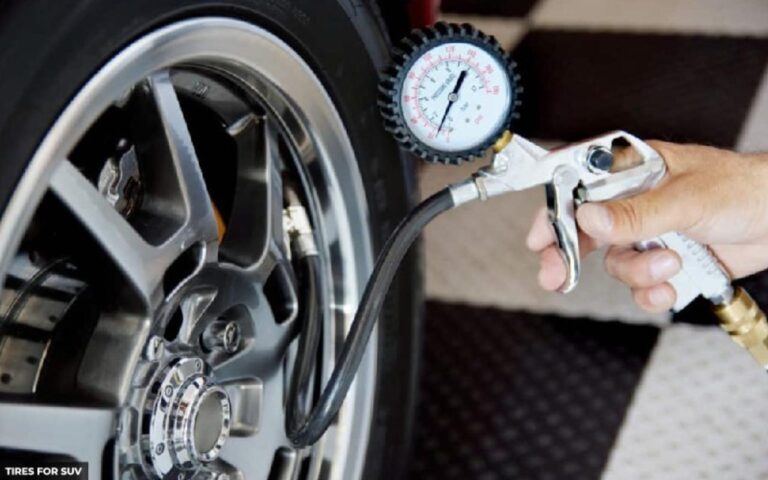Filling up at the pump can be a harrowing experience, regardless of what kind of car a person is attempting to fill up.
Even trying to keep gas in economy cars these days can put a major dent in someone’s wallet, let alone the cost of fueling up an SUV or minivan. Thus, it makes perfect sense that the cost of filling up a tank will lead people to try some truly unique methods and tactics when it comes to saving some mileage on their vehicles.
From strange products that can be fitted to some vehicles, different driving techniques, and even unwillingness to drive others around for fear of added weight, the battle for gas mileage has truly become a ruthless war against the inevitable.
However, it may surprise many to learn that one of the best things that can be done for gas mileage in any vehicle is also one of the most easily overlooked. Indeed, the tires that your car rides on are a major factor in gas mileage, and they also make an incredible impact on overall vehicle safety. Despite this, though, many overlook tires as just another part of the car.
Factors Why Tires Dragging Down Your Car
Fortunately, though, actually finding out if your tires are dragging down your vehicle or not is a fairly simple matter. In fact, take walking around your vehicle and doing a simple inspection of your tires is enough to identify some common faults, such as whether or not a tire is looking flat, has a bubble, is afflicted by a defect, or some other problem that can spell danger for both safety and gas mileage alike.
While looking at the tires can be an easy enough cure, it also pays off to look a little deeper into your tires and take a second to examine some of the factors that can greatly affect nearly every aspect of your vehicle.
Tire Pressure
When it comes to important factors, one of the best places to start is with your tire pressure.
The tire pressure can be check with any number of cheap monitors (usually shaped like a pen), which are readily available at any auto parts store. While the exact amount of pressure will be different for each tire and vehicle being tested, your monitor should provide you with an ideal range to look for. When testing the car, remember to be very careful in reading the pressure.
If the pressure is too low, it means that the tires are not providing a pleasant ride for your or anyone else in your car. It also means that your car will not handle nearly as well as it can, and the underinflated tires can prevent your car from properly accelerating or braking, meaning that you will use much more gas than should be consumed. Eventually, your brakes will also be worn down.
If you find that your pressure and inflation levels are low, travel to the nearest gas station and put a little more air in; this should fix the problem and improve the performance and safety of your vehicle immediately.
However, be careful not to go overboard and overinflate the tire, as this comes with its own set of problems. Of course, having too much air in your tires won’t tend to make a major difference when it comes to miles per gallon. Still, it can definitely become an issue in determining the lifespan of your tires and your ability to drive in adverse conditions.
When a tire is holding too much air, it means that it is not able to stick to the road properly; remember that your car, at any given point in time, only has four small contact points with the road (being the places where each of your tires hit the ground), when any one of those four spots are not calibrated and balanced properly, you have the potential for danger, and having overinflated tires can be an incredible danger, not to mention that it will lead to your tire tread burning up much faster.
Tread Depth
In addition to ensuring that your tires have the proper pressure, one of the best things to do while inspecting them is to check out the tread depth and make sure that the tires themselves are in good condition.
As anyone likely knows, driving tires without the proper amount of tread depth can be a potentially dangerous situation, and it will also stop your car from driving, accelerating, and braking in the manner in which it should.
Like many other factors when it comes to tires, Tire tread can mean a definite decrease in gas mileage and means a dramatic loss of safety. If you are not sure how to read tread depth or suspect that you may have a problem, ask someone with some car knowledge or a local mechanic to determine if your tires are in good shape.
Remember, even if you need to replace your tires, the two or three hundred dollars that it will cost can never measure up to the safety benefits that you will receive in return. This may be an important point to mention that just because your tires passed inspection does not necessarily mean they will be good for another year; remember to maintain a good grasp on your tires and regularly check to make sure that your tires are in good shape and capable of providing a safe and economical drive.
Other Minor Matters
Although this may seem obvious, don’t ever forget to check your tires for any debris that may have become stuck in the tire or lodged in the tread. In the most extreme cases, this refers to nails, tacks, or other sharp objects that may have punctured the tire but remained inside it.
This simply means that you should make sure no small rocks clinging to the inside of your treads in more minor matters. While this may seem minor, remember that virtually anything, no matter how small, can affect your tires and how your car drives, which can have an especially potent effect on gas mileage.
Remember that keeping your tires clean and making sure that mud and other substances don’t stay caked on for weeks is another way to improve safety and gas mileage.
Even in our busy, busy lives, we can always spare a couple of minutes to make sure that the cars we drive are safe, and the lives of those that choose to drive with us are safe as well.
Of course, tires can have a major effect on gas mileage, and properly maintaining and checking them will likely save you a lot of money at the pump over the weeks and months to come, but the primary focus should always be on safety.
Conclusion
Anytime you drive on the road, you have the potential to affect many, many lives. A tire check takes only a few minutes, and it can mean all the difference in the world.

